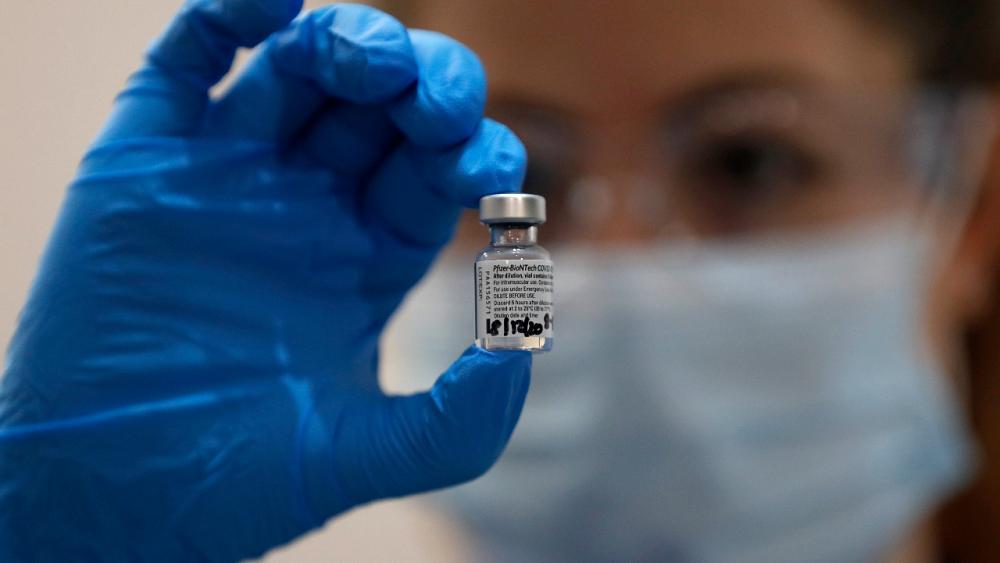
The chances of being infected with COVID-19 saw a marked drop after patients received a first dose of either the AstraZeneca or Pfizer vaccine, new research has found.
In data from two studies, the Office for National Statistics (ONS) and University of Oxford research found that people of all age groups showed a strong antibody response after receiving either jab.
The vaccines appeared to work just as well in people aged over 75 and in those with underlying health conditions as others.
The new findings, which have not yet been peer-reviewed, are based on testing of 370,000 people in the UK, representing one of the largest studies to date.
Response across all age groups
In one study, those who had received the first dose of either the AstraZeneca or Pfizer vaccine were found to be 65% less like to contract COVID after a 21-day period, which is generally how long it takes for the body to develop an adequate immune response.
After three weeks of having received the first doses, which were administered between December 2020 and early April 2021, symptomatic infections appeared to drop by 74%. Meanwhile, infections without reported symptoms fell by 57%.
The study found that two doses of the Pfizer jab significantly reduced new infections. However, the research could not come to the same conclusion on AstraZeneca, given that not enough second doses had been administered yet.
In a phone interview with Euronews on Friday, Dr Koen Pouwels, a senior researcher at the University of Oxford’s Nuffield Department of Population Health, said he was “pleasantly surprised” by the two studies’ findings.
“We had done a much smaller study in healthcare workers and there, we saw reasonably [strong] responses, but of course that is a particularly younger and healthy population, so we weren’t entirely sure what this would look like in older adults,” he said.
“The first time I saw [the findings], I was pleasantly surprised that there was such a good response in older people too,” he said.
Data from the second study found a strong antibody response in 46,000 adults who had received a first vaccine dose.
Both studies found that antibody responses were higher in people who had previously been infected with COVID.
Without prior infection, the second study found that antibody levels after a single dose were lower in older individuals, especially in those under the age of 60.
“Two doses achieved high responses across all ages,” the study found, however.
Dr Pouwels said that while the data showed the antibody response was “quantitatively slightly lower in older people, it’s still above the level where we say people have antibodies”.
“So, it was still higher than we were thinking because essentially, 95% of people, regardless of which vaccine was being used, had a good antibody response,” he said.
Still a risk of infection
However, Dr Pouwels said it was important to remember that there is still a risk of infection after vaccination.
“A 65“% reduction means that there are still people getting infections,” he said.
That is why, he said, it is still important for those who have been vaccinated to continue social distancing, wearing masks and following other COVID guidelines.
Overall, however, he said the data was promising and provides further backing for extending the gap between first and second vaccine doses.
Noting that early trials have suggested that a slightly longer gap between the first and second doses of the AstraZeneca vaccine can be “more effective,” Dr Pouwels said gaps between doses also allowed for more people to get the jab.
“It means you can initially vaccinate more people with a first dose,” he said.
 RSS Feed
RSS Feed















 April 23rd, 2021
April 23rd, 2021  Awake Goy
Awake Goy  Posted in
Posted in  Tags:
Tags: 













